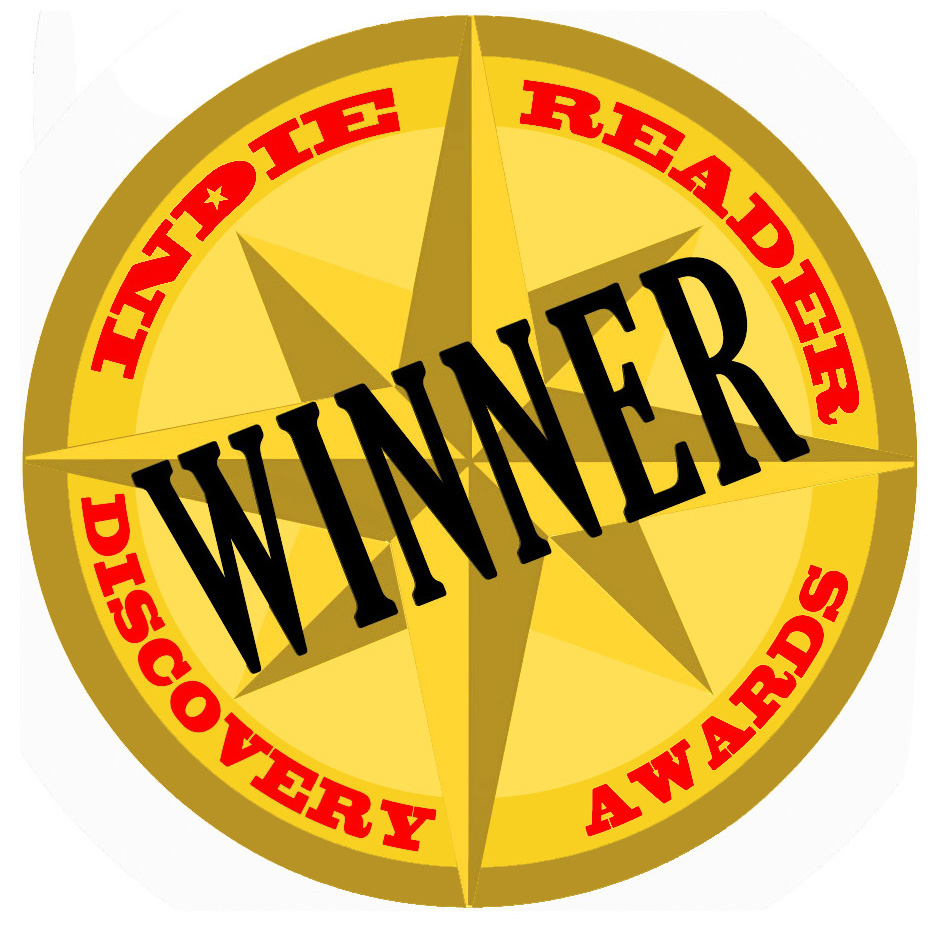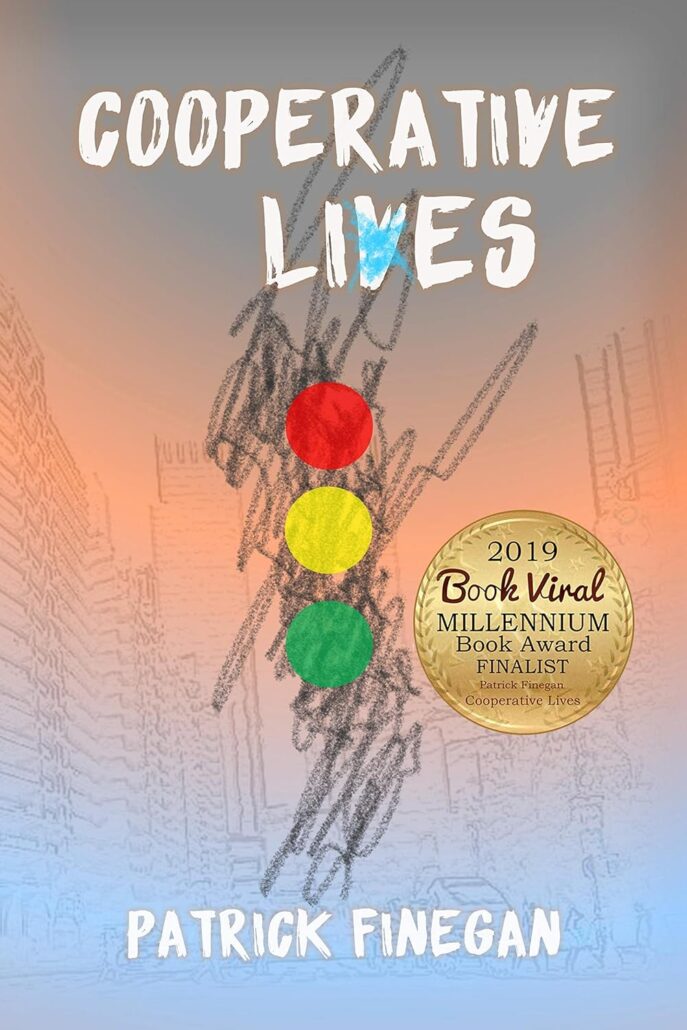
Toys in Babylon: A Language App Parody and Whodunnit was the winner in the Humor (Fiction) category in the 2025 IndieReader Discovery Awards, where undiscovered talent meets people with the power to make a difference.
Following find an interview with author Patrick Finegan.
“I am immensely grateful that Indie Reader enjoyed the humor in my satire of the online teaching company, Duolingo. I was confident when I published it that fellow Duolingo addicts – language enthusiasts who study for hours daily, and who fret inconsolably about racking up XPs – would “get” the inside references and frequently pointed humor, but the rest of the reading world remained a question mark … and a source of great self-doubt. Thanks to the wonderfully kind verdict of the 2025 Indie Reader Discovery Awards, I can now lay some of those doubts to rest. Thank you, Indie Reader. The award is humbling and means more than you can imagine!”
What is the name of the book and when was it published?
Toys in Babylon: A Language App Parody and Whodunnit, published August 15, 2024
What’s the book’s first line?
Teller shut the refrigerator and plopped onto the couch.
What’s the book about? Give us the “pitch”.
Things go horribly wrong when the world’s most successful online teaching company replaces staff with artificial intelligence so adroitly that its cast of cartoon educators begins thinking on its own. What follows is a madcap romp as the enterprise struggles to (a) solve the sudden disappearance of its corporate mascot – a perky, multilingual plush toy, and (b) put the AI genie back in the bottle. Toys in Babylon is a thinly disguised satire of Duolingo and a must-read for anyone who has invested time or patience with the owl.
What inspired you to write the book? A particular person? An event?
I am a passionate student of foreign languages and a loyal, but often exasperated customer of Duolingo. Like many online start-ups, Duolingo is a work in progress. Its teaching methods, its curricula, its motivational hooks, even its business model have “evolved” in frequent, unannounced bursts, infuriatingly at random. For 100 million active subscribers (aka unwitting beta testers), the changes can be jarring… and humorous. Toys in Babylon arose when Duolingo announced it was replacing a large percentage of its workforce, including programmers and language experts, with artificial intelligence. It did not take a great leap of imagination to predict what might go wrong.
A quirk of Toys in Babylon is that I alternated writing chapters of the original manuscript in English and German. Once completed, I translated each chapter into the other language, so that the English and German editions of the novel (the German title is Bärenmord: Eine Sprach-App-Parodie und Krimi) hit the bookstands contemporaneously. It was my way, I suppose, of acknowledging respect for the company I satirized. Parody-worthy foibles aside, online language courses are effective!
Trivia quiz: Guess which chapters I authored in German, and which chapters I authored in English.
What’s the most distinctive thing about the main character? Who-real or fictional-would you say the character reminds you of?
The most distinctive facet of every character in Toys in Babylon (it is impossible to single out a “main” character) is they came from the real world yet immersed themselves in an online educational cartoon world, only to find the cartoon world commandeered by AI mainframes that somehow become self-aware and, as a consequence, fiercely insubordinate. The characters remind me of everyone who has ever attempted to “outsmart” God. It seldom ends well.
What’s the main reason someone should really read this book?
Entertainment. My first novel, Cooperative Lives, was an emotionally wrought attempt to produce “literature”. Toys in Babylon, by contrast, is a gentle-hearted attempt to evoke laughter.
If they made your book into a movie, who would you like to see play the main character(s)?
Eight months before publication, I pitched twelve undisguised chapters to Duolingo as its proposed answer to Warner Brothers’ megahit, Barbie. The movie did wonders for Mattel. Why, I reasoned, couldn’t a similar vehicle do wonders for Duolingo? Duolingo politely declined, but Toys in Babylon was undeniably written with the silver screen in mind. I considered the manuscript perfect for companies such as Pixar (Wreck it, Ralph) and Dreamworks (Shrek).
I won’t spoil the plot, but a crucial AI personality in Toys in Babylon is Mirva, an enormously clever artificial intelligence, who is also a bit of a chameleon. From her first words, Mirva’s voice (in my mind) echoed Julianne Moore’s, because a good friend once brought Ms. Moore as his guest to one of my language mixers on the Lower East Side of Manhattan (she speaks German). Ms. Moore is also my contemporary.
Mirva’s anchor in the “real world” is Jacques, an aging programmer and film aficionado who finds younger generations so superficial that his cyberspace “student” Mirva becomes his sole confidante. Antonio Banderas isn’t French, but I would have no qualms amending the script to accommodate his casting. He, too, is multilingual.
There are myriad other characters – the founders and management of the online enterprise, its programmers, customers, and cartoon cast of educators, but a savvy producer could narrow costs by assigning multiple voices to Seth MacFarlane or Eric Bauza or even Mark Hammill. The point is, I write books; I do not cast films.
The person who introduced me to Julianne Moore in 2006 or 2007 was, interestingly, a casting director. In 1988, he cast Ms. Moore in As the World Turns, her breakthrough role. Thank you, VL! If Toys in Babylon were so lucky as to be optioned for cinema, I would leave casting 100% to the studio. Better surely than me, they know their business.
When did you first decide to become an author?
I published my first novel in 2019, but it was seven years in the making. The financial crisis of 2008 set me adrift but also set me free. I am a great fan of new beginnings.
Which book do you wish you could have written?
Every few years, I stumble across a “perfect” book – one which, as hypothetical editor – I would never dare change even slightly. For years, my gold standard was Edith Wharton’s The Age of Innocence. Then came the opening short story in Jhumpa Lahiri’s The Interpreter of Maladies, then Anthony Doerr’s All the Light We Cannot See, and, most recently, Richard Powers’ The Overstory. Any one of these could serve as the single book I most devoutly wish I had written, but first prize goes to Colum McCann’s Let the Great World Spin, published in 2009 while our respective daughters attended middle school together on the Upper East Side. I sheepishly asked my daughter to ask his daughter to have her father sign a copy I purchased at a local bookstore. I never met Mr. McCann in person, but the book remains my prize possession – a narrative masterpiece.
Fun fact: Long before our daughters became acquainted, I discovered the French translation of Colum McCann’s The Side of Brightness in a Swiss bookstore (translated into French by Marie-Claude Peugeot). I did not know Colum McCann from Adam, but the rain-soaked cover image of the Flatiron Building beckoned me, and Les saisons de la nuit became the first adult-level “French” novel I ever began reading… and finished! Thank you, Colum McCann! You inspire me, even in translation.

